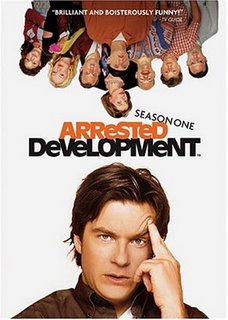 My parents' marriage tended to be troubled and volatile and inhibited the exercise of effective parental leadership by both my mother and father. My sister and I frequently became targets for parental projections and externalizations, which defended against the acknowledgment of deeper disappointments in the relationship between my parents. I believe that from birth, my sister had been designated the "good" child and I had been designated the "bad" child.
My parents' marriage tended to be troubled and volatile and inhibited the exercise of effective parental leadership by both my mother and father. My sister and I frequently became targets for parental projections and externalizations, which defended against the acknowledgment of deeper disappointments in the relationship between my parents. I believe that from birth, my sister had been designated the "good" child and I had been designated the "bad" child.Why did my sister attain a higher level of functioning than I? The literature is instructive. One important aspect of the unitary organization of the family system is the flow of emotional influences that forms a sort of emotional contagion. There are countless examples of the ways in which one family member will manage to be preserved from the pathogenic effects of emotional involvements, but at the expense of one or other members of the family. The outbreak of symptoms in one or other member may serve to protect other members in the family and allow them to maintain an adequate level of functioning.
My parents often had considerable difficulty agreeing over parental discipline and often engaged in competitive struggles for control of the family. An interactional pattern of hyperadequacy/inadequacy was adopted between my parents, and any deviation of this pattern was resisted by family mechanisms calculated to reinstate the former balance.
Both my mother and my father were deeply enmeshed emotionally with their families of origin. My father did not marry until he was forty years old. Until he married at age forty he lived with his older sister. My mother also married relatively late, at age 31. Until she married my mother lived with her mother and older sister, who did not marry until she was 34. My mother's only relatives were her older sister and her mother. There was no one else: no grandparents, no aunts and uncles, and no cousins. They never grew out of the intense emotional support system that they had created for themselves. My mother once said to me in anger, "My sister means more to me than you do." It's interesting that my own sister was named for my mother's older sister, as if my mother had initiated my sister from birth into a kind of private club which I was never allowed to join. My mother's older sister never had children and she treated my sister and I as her own children and was forever giving parental advice to my mother, who was compliant in her elder sister's wishes. It was my aunt who decided that my sister should take piano lessons. My aunt went so far as to order a piano, without consulting my parents, and have it delivered to our house. My aunt made the first payment and expected my father to make the remaining payments, which he could ill afford. My mother never developed any autonomy in regard to her sister. Emotional entanglements were maintained, despite the apparent separation of geographic distance.
My mother and her elder sister experienced an infantile trauma in their past. Their own father had died when they were children; my mother was three-and-a-half and my aunt was five years old when their father died. The literature indicates that children experience early death of a parent as an abandonment that is reacted to by rage, which is repressed and projected into other family members. Primitive expressions of aggression are handled by splitting of good from bad objects; this constitutes a major defense against intolerable anxiety and guilt.
The boundaries between my parents in their functions as husband and wife, and as parents, were easily blurred and easily trespassed. Mutual accusations and recriminations were frequent.
Boundaries between my parents and my sister and I tended to be blurred. Parental invasion of my privacy, and incursion of my sister and I on parental functions, was common, resulting in confusions regarding sexual identity and authority. My sister, who was six years older than I, often acted as though she were my parent. The literature indicates that this dynamic feature results in increasing ineffectiveness in parenting functions, particularly in the accomplishment of crucial developmental tasks.
Both my parents' respective families were characterized by a history of several generations of family emotional systems in which serious difficulties in interpersonal relationships, failures to achieve separation and autonomy, high levels of marital conflict and tension, and unresolved issues concerning separation and individuation were observed. One of my father's older brothers never married and lived his entire adult life with his older sister. Another older brother divorced. An older sister married relatively late in life, was widowed shortly thereafter, and never remarried. Another widowed older sister married a man with whom she had had an adulterous affair.

No comments:
Post a Comment